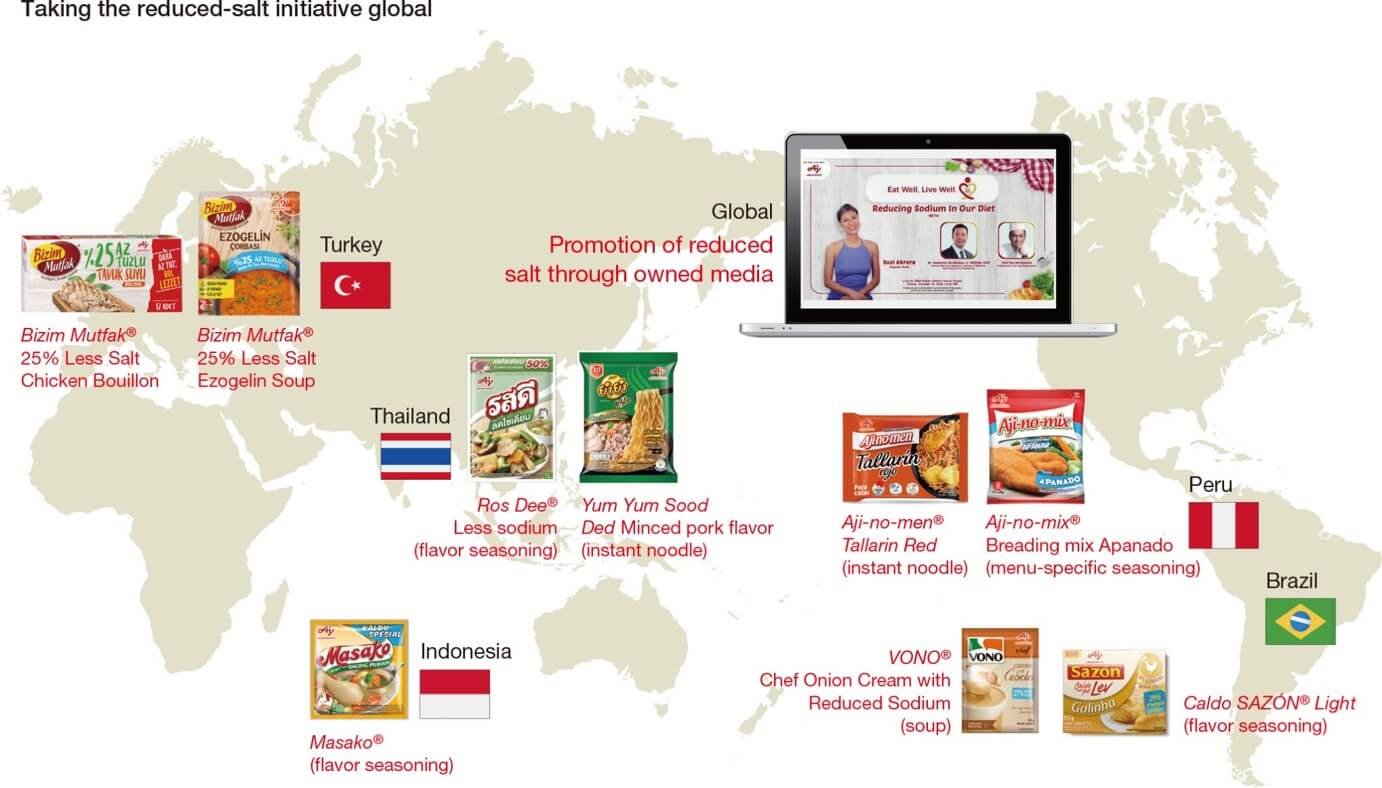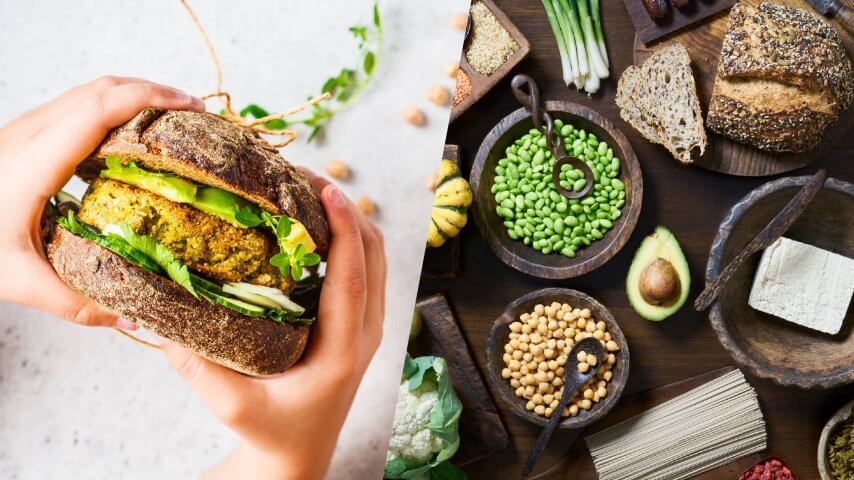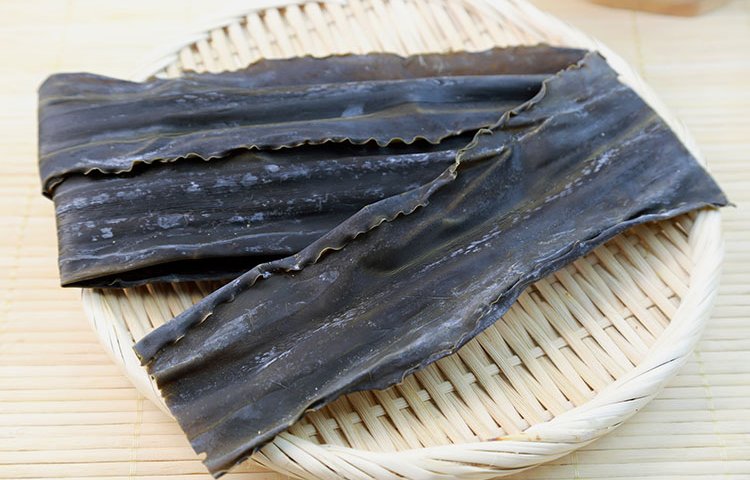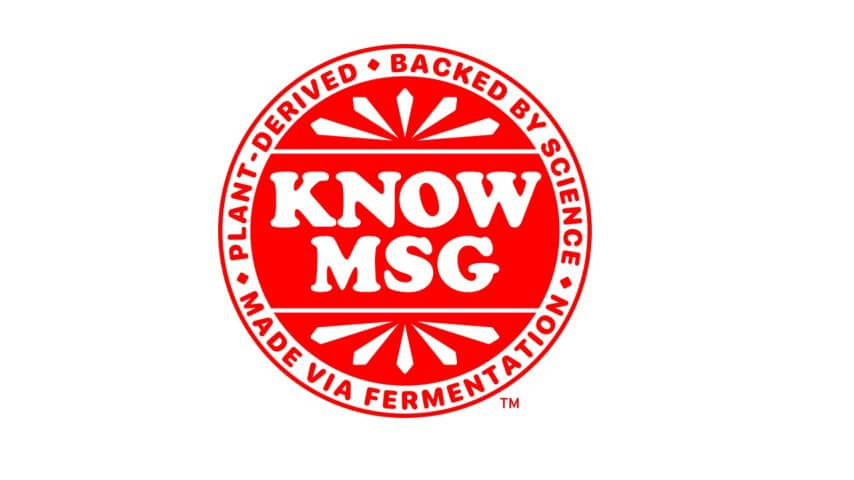Reading Time: 4minutes

Table of Contents
Japan is renowned for its simple yet elegant cuisine, or washoku, and long life expectancy. But while the Japanese diet is packed with a wide array of healthy and nutritious ingredients, many foods––including soy sauce, miso, preserved fish, and pickled vegetables––are prepared in ways that increase sodium.
On average Japanese men consume 10.9g and women 9.3g of salt per day, high by global standards and twice the World Health Organization’s recommendation of 5g, or about 2g of sodium.*1 According to the WHO’s “Salt reduction” fact sheet, reducing salt intake can improve health outcomes for people worldwide.*2
*1 National Health and Nutrition Survey Japan, 2019
*2 WHO Fact Sheets “Salt reduction”
Since 2014, the Ajinomoto Group, together with local stakeholders, has been trying to help people in Japan reduce sodium without compromising taste.
One such success story is the Iwate Salt Reduction Project in the northern prefecture of Iwate. Using awareness-raising campaigns, in-store promotions, nutrition workshops, and reduced-salt menus featuring local ingredients, average daily salt intake was cut by 10-20% over four years, and Iwate went from being ranked 1st to 20th nationally in salt intake. The project has been expanded across the Tohoku region with a view to eventually reaching nearly all of Japan’s 47 prefectures.
A further Ajinomoto Group initiative is its Smart Salt project, promoted as a “Japan model” for delicious salt reduction. It draws on native culinary traditions based around umami, such as fermented foods and dashi broth made from dried seaweed, mushrooms, fish, or shellfish.
Smart Salt project provides consumers with information on reduced salt products and preparing easy, delicious, and healthy meals using AJI-NO-MOTO® umami seasoning––which contains two-thirds less sodium than table salt––dashi, and other flavor seasonings. The project features online recipes and videos and leverages government, media, and community engagement, customer development, and marketing initiatives.

Delicious salt reduction is not an issue only in Japan. People worldwide can find reducing salt in their diets difficult due to the perception that low-salt foods taste bland.
That’s why Smart Salt project has been expanded overseas, as of July 2022, with over 45 reduced-salt products across 19 brands tailored to local cuisines in seven countries starting in April 2020. These include Ezogelin Corbasi, a hearty Turkish lentil soup; Aji-no-mix® apanado breading mix, used to make Peruvian fried chicken; and Yum Yum Sood Ded minced pork flavor instant Thai noodles.
In addition, in Malaysia, where 4 out of 5 people consume more than 5g of salt per day, Ajinomoto Malaysia’s eye-catching “Less Salt, Umami it!” campaign encourages consumers, through a mix of paid, owned, and earned media, to replace ordinary table salt in their recipes with AJI-NO-MOTO® umami seasoning.

The Ajinomoto Group Integrated Report FY2021
Ajinomoto Indonesia’s Smart Salt initiatives
The Ajinomoto Group’s efforts to improve nutrition through delicious salt reduction supports the UN’s Sustainable Development Goals of Zero Hunger and Good Health and Well-being. Through its commitment to Nutrition Without Compromise, the Group also supports the WHO’s Global Noncommunicable Disease Targets to reduce salt intake by 30% and the prevalence of hypertension by 25%.*
By making it easier for consumers to eat balanced, delicious meals, the Group aims to decrease undernutrition and help extend the healthy life expectancy of 1 billion people by 2030.
Stories you may like

Thriving on plant-based protein: solutions for a sustainable future
- Food & Wellness
- Health and Well-being
- Nutrition
- Sustainability / SDGs
- Umami

Confronting the “silent killer” in Vietnam: delicious salt reduction using umami
- Food & Wellness
- Health and Well-being
- Nutrition
- Sustainability / SDGs
- Umami

What Is Kombu & How to Use It: The Source of the Fifth Taste
- Food & Wellness
- Health and Well-being
- Nutrition
- Sustainability / SDGs
- Umami



